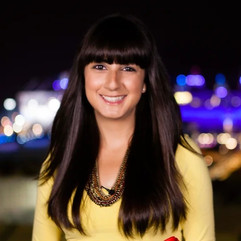No going back: new era of women’s sport viewership and impact
- Aug 15, 2023
- 3 min read

Words by Petra Buchanan
In the landscape of sports media and entertainment, the FIFA Women’s World Cup 2023 marks a significant milestone for women's sports. It's evident that a seismic shift has occurred, redefining the way audiences engage with and embrace female athletes. But one thing remains constant, the power of sport to bring the nation together.
We are witnessing a transformed landscape. Seven’s broadcast of the quarterfinal match was the biggest TV sporting audience for more than two decades, reaching an average of more than 4.17 million people – not including the hundreds of thousands of people watching in stadiums, pubs and on outdoor screens and on Optus Sport. Seven says it is their biggest ever streaming event, with 7.2 million viewers tuned in to watch The Matildas' dramatic 7-6 penalty shootout win over France. That is, until the next Matildas match.
This shift in viewership reflects not only changing media consumption habits but also a growing appreciation for women athletes. The Matildas' success has shattered old arguments about the marketability of women's sports. With every goal and victory, they propel the narrative forward, drawing sponsors, advertisers, and increased broadcast rights. This newfound attention will translate into higher value for the leagues and the athletes who power them.
Channel 7 did what would have been unthinkable just a few years ago – delaying the news to play the match. Pushing back the 6pm bulletin is rare – saved only for male sport in the past including Steve Waugh, Michael Clarke and Dylan Alcott.
The significance of this moment cannot be overstated. Whether or not they secure further wins, their impact is undeniable. Families gather around the television, fans young and old are engrossed, and a nation is rallying behind its heroines.
This resurgence extends beyond soccer. As the AFLW gears up for its 10-game season, a groundswell of anticipation builds. The Matildas' triumphs are a catalyst, a clarion call for fans to embrace and support women's sports across the board. Networks like Fox Sports and Nine are investing in showcasing these leagues; recognising the potential they hold.
We are at a watershed moment. A point of no return, where the enthusiasm for women's sports is poised to become an indomitable force. With the right momentum, the leagues will flourish, and the athletes will ascend to greater heights, much like their counterparts in men's sports.
And hopefully this will bring with it more female voices, authors, and presenters involved in sports stories. Released earlier this year, the Women in Media Gender Scorecard revealed a significant gender disparity in Australian media, particularly in sports coverage. Men dominate as the authors, sources, and experts in sports stories, with men representing 82% of authors, 84% of sources and 90% of experts. The research, based on an analysis of 18,346 news reports over a two-week period shows more needs to change in how we cover and report on sport.
In an era marked by technological advancements, instant gratification, and ever-diversifying entertainment options, the fact that millions are rallying behind The Matildas showcases the enduring power of sports to unite and inspire. With each goal, sprint, and victory, they etch a new narrative, one where gender distinctions fade, and athletic prowess takes centre stage.
So, as the nation collectively holds its breath, whether you're an ardent soccer aficionado or a first-time viewer, the stage is set, the players are ready, and the course of history is being rewritten with every cheer from the crowd. This is a proclamation of a new era, where women's sports claim their rightful place in the spotlight.
At the upcoming National Conference, Amanda Shalala, the co-lead of ABC Sport's 50:50 Equality Project, will moderate a panel on Sports Outsized Impact, how sport and media can pave the way for inclusion and equality. Three women known for breaking barriers and achieving significant outcomes will discuss these themes. Ellie Cole OAM is Australia’s most decorated female Paralympian; Moya Dodd AO is former vice-captain of The Matildas and a sports administrator, and Tanya Hosch leads Aboriginal and Torres Strait Islander issues, Gender Equality, Sexuality and Gender Diversity for the AFL.










